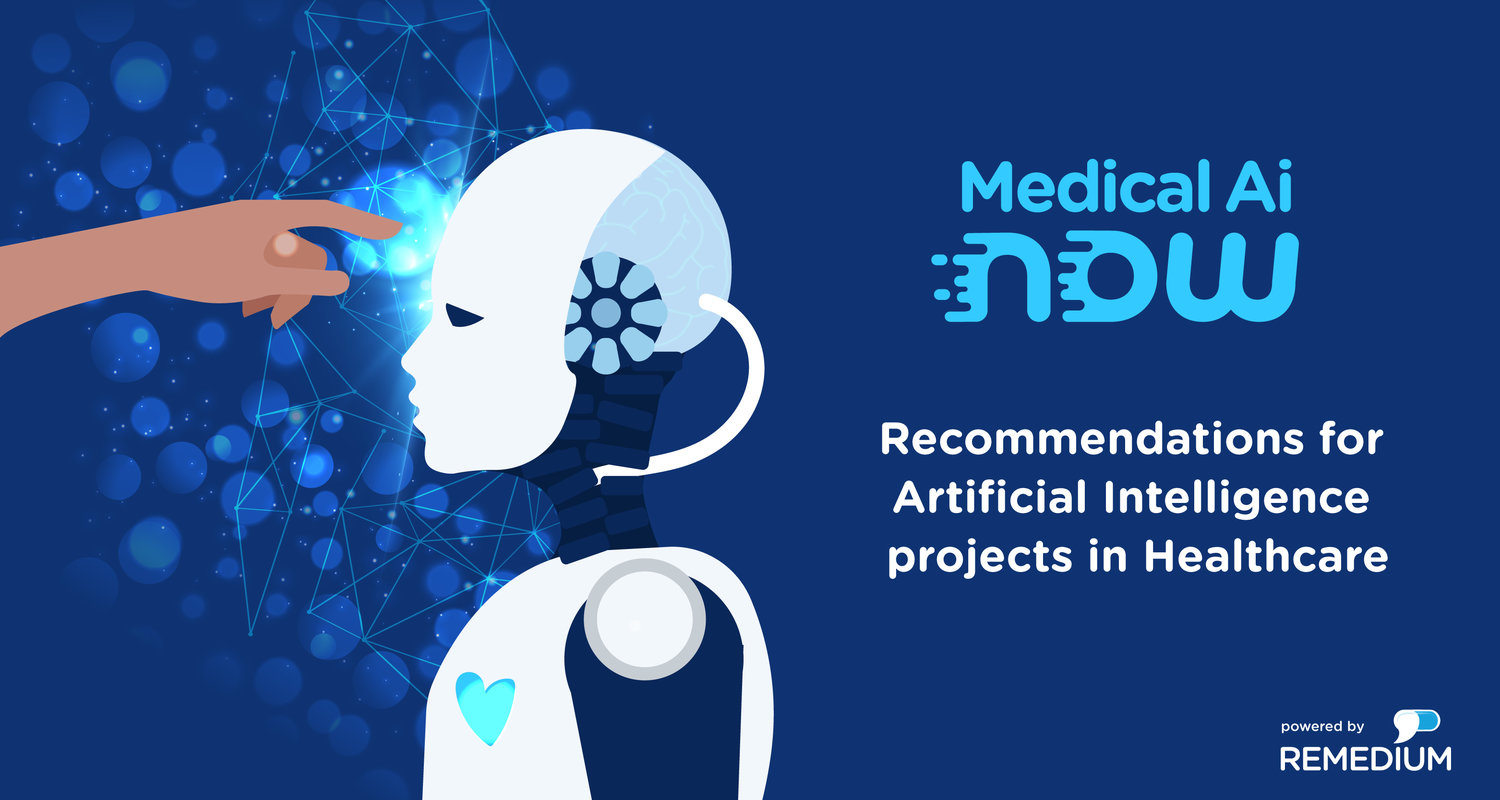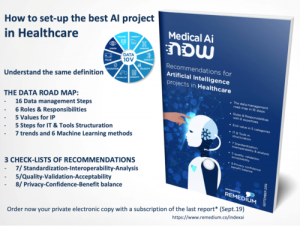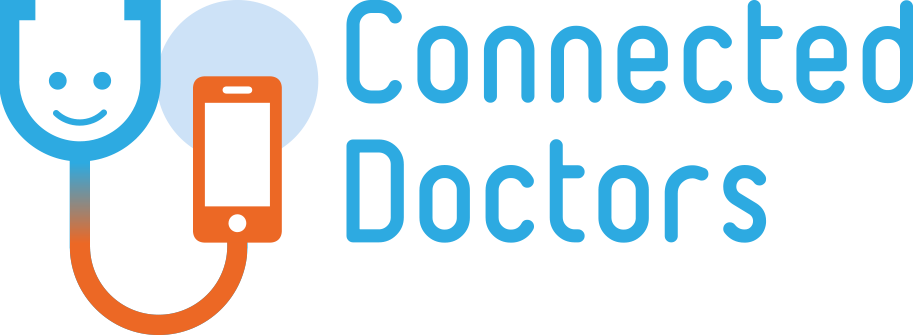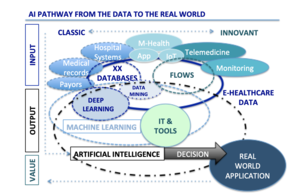
Vincent VARLET, MD #white paper #AI4Health @drvarlet
ABSTRACT:
Artificial Intelligence (AI) is a science of making tools do things that would require human intelligence and only do what it is designed to do. It’s a promising transformation for the world and a little bit scary, only due to the fact Human decide the objective, helping people, creating new ways to service, prevent, cure…. or not!
Healthcare couldn’t escape regarding this new Eldorado promise trillion productivity or business value (Aug.2019 Gartner report), but last summer we are witnessing an outcry against major health intelligence initiatives because of the unreliability of their results.
European Commission should set a world-standard to protect individuals about “sensitive data, human and ethics implications of AI “ said Ursula von der Leyen, incoming President of the Commission
The objective of this white paper is to clarify capabilities after definition and starting recommendations for the future usage of healthcare data, compiled in the word “Artificial Intelligence”.
The conclusion of this work is to describe the best road-map, team and methodology for real deliverables and added value.
TARGET AUDIENCE:
Patients groups; Academics; HealthCare Professionals; hospitals; R&D, HC Industry (Pharma, Medical Device, BioTech, CROs, …), HC Insurers (private/public), Assisters, Authorities (Health Agencies, evaluators, governments…), Start-up, IT/digital operators, media, and you if you need to understand the evolution...
 KEYWORDS:
KEYWORDS:
#Artificial Intelligence #Big Data #Machine Learning #Deep Learning #Block Chain #e-Health #Bioinformatics #Biostatistics #XAI #Algorithms #Neural Network #Analytics #Privacy by design #Anonymization #re-identification #Medico-economy #10Vs’ data #Open Data #Open Auto-ML #IoT #Wearable #Medical Device #Drug Delivery #Monitoring #Compliance #Bias #Hacking #User Experience #Education #Acceptance #Intellectual Property #Agile Methodology #IT Architecture #FDA #HMA #EMA #GDPR #EU
SUMMARY
1. Introduction
2. Healthcare context
2.1 Patient objectives 1st for an acceptance of AI
2.2 At the origin of the AI: the medical needs for the patient benefit
3. Definition
3.1 Artificial intelligence, Machine learning, Deep learning, Blockchain, Big data
3.2 The 10Vs’ of data and Open data
4. The data road map & checklist
4.1 Data management in sixteen steps
4.2 Roles and Responsibilities of six expertise
4.3 Collecting and protecting End Value in five categories
4.4 IT and tools
4.4.1 Machine learning with six methods,
4.4.2 ML process,
4.4.3 Statistics and Bias limitation,
4.4.4 IT infrastructure: the seven trends
4.4.5 Auto-Machine-learning: eight auto-ML tools
4.5 Explainable Artificial Intelligence (XAI) concept
5. Recommendations
5.1 The seven Recommendations for data Standardization, interoperability & analysis
5.2 The five Recommendations for data quality, validation, regulatory acceptability
5.3 The eight Recommendations for Privacy Impact Assessment and confidence in a patient benefit balance
5.4 Algorithm and Regulation (use cases)
6. Conclusion



 KEYWORDS:
KEYWORDS:


